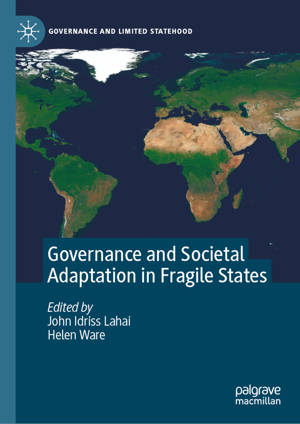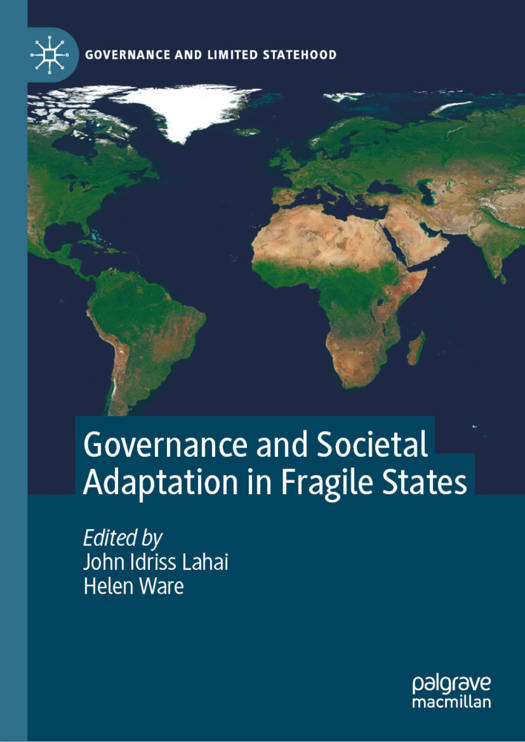
- Afhalen na 1 uur in een winkel met voorraad
- Gratis thuislevering in België vanaf € 30
- Ruim aanbod met 7 miljoen producten
- Afhalen na 1 uur in een winkel met voorraad
- Gratis thuislevering in België vanaf € 30
- Ruim aanbod met 7 miljoen producten
Zoeken
Governance and Societal Adaptation in Fragile States
€ 105,45
+ 210 punten
Omschrijving
This book examines the various ways in which some fragile states in the Global South (or states with limited statehood) have adopted, and adapted to, processes of governance in their quests to address the socialized problems affecting their societies. It tells the story of these states' resilience in the societal adaptation to a liberalized notion of governance. In addition to comparative case studies, the book also analyzes the engendered interplay of culture, economics, and politics in the creation of people-centric governance reforms. The contributing authors shed light on weak states' often constructive engagement in the promotion of state governance under a variety of societal conditions, adverse or otherwise, and on their ability to remain resilient despite the complexities of the political and economic challenges they face.
Specificaties
Betrokkenen
- Uitgeverij:
Inhoud
- Aantal bladzijden:
- 275
- Taal:
- Engels
- Reeks:
Eigenschappen
- Productcode (EAN):
- 9783030401337
- Verschijningsdatum:
- 10/06/2020
- Uitvoering:
- Hardcover
- Formaat:
- Genaaid
- Afmetingen:
- 148 mm x 210 mm
- Gewicht:
- 494 g

Alleen bij Standaard Boekhandel
+ 210 punten op je klantenkaart van Standaard Boekhandel
Beoordelingen
We publiceren alleen reviews die voldoen aan de voorwaarden voor reviews. Bekijk onze voorwaarden voor reviews.










